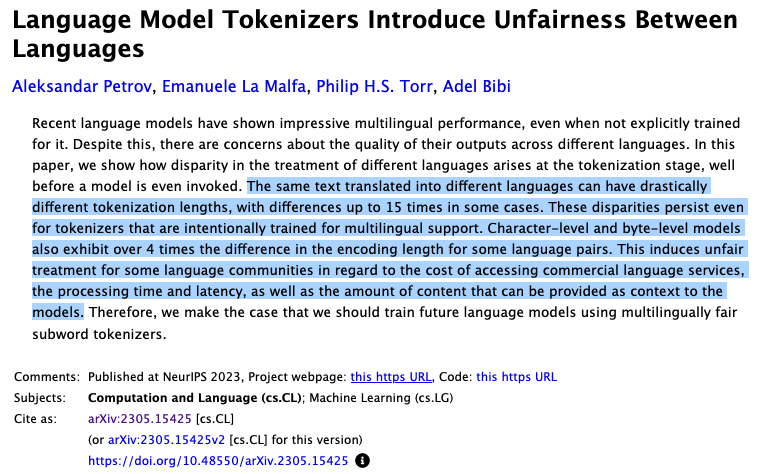TIL from this paper that although LLMs can translate text from one language to another, the cost of doing so varies greatly, thereby making LLMs more costly within some languages because of how words are tokenized.

TIL from this paper that although LLMs can translate text from one language to another, the cost of doing so varies greatly, thereby making LLMs more costly within some languages because of how words are tokenized.
